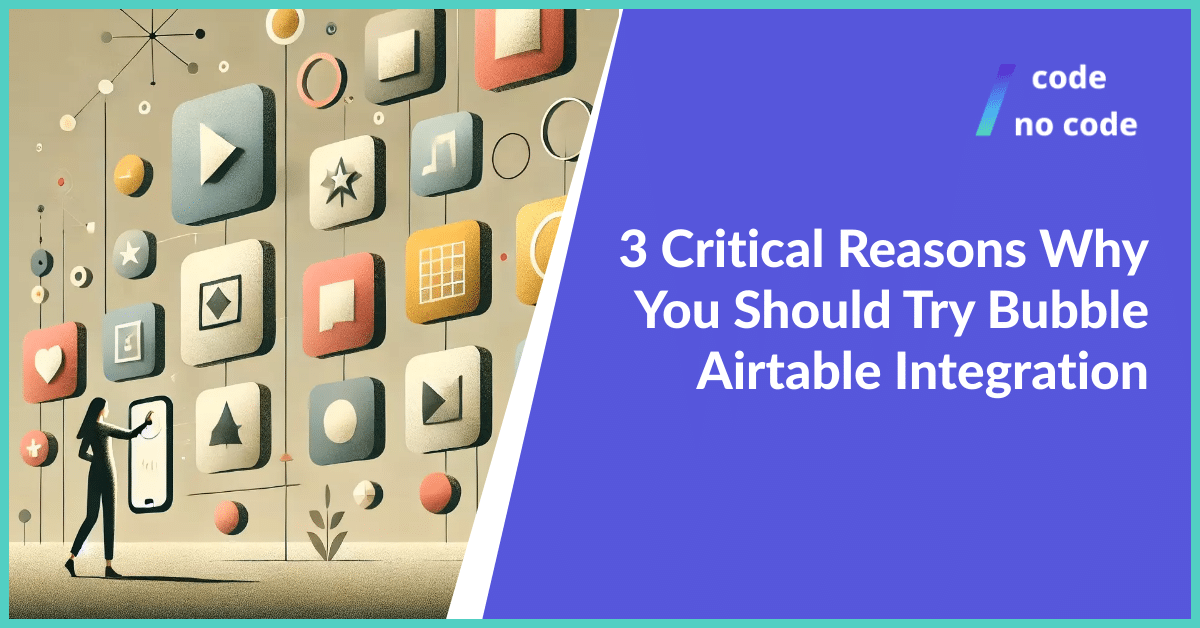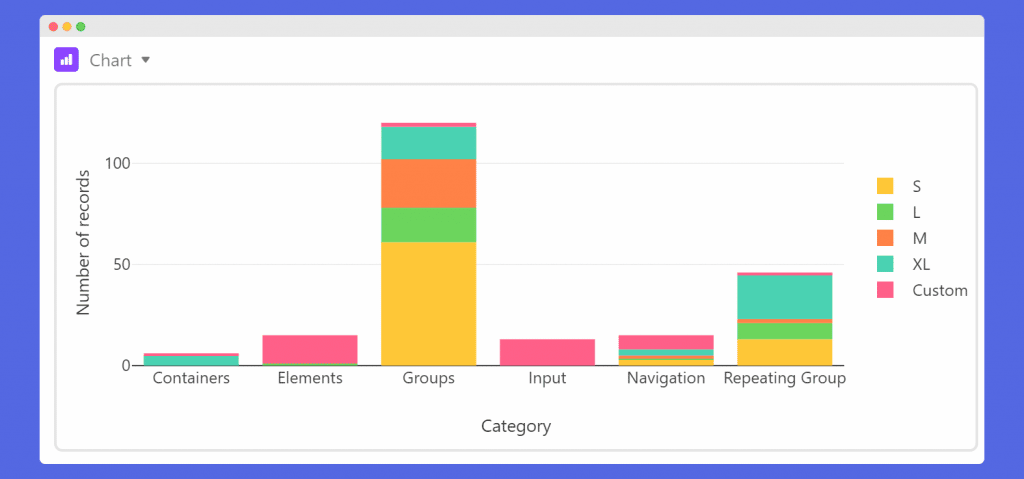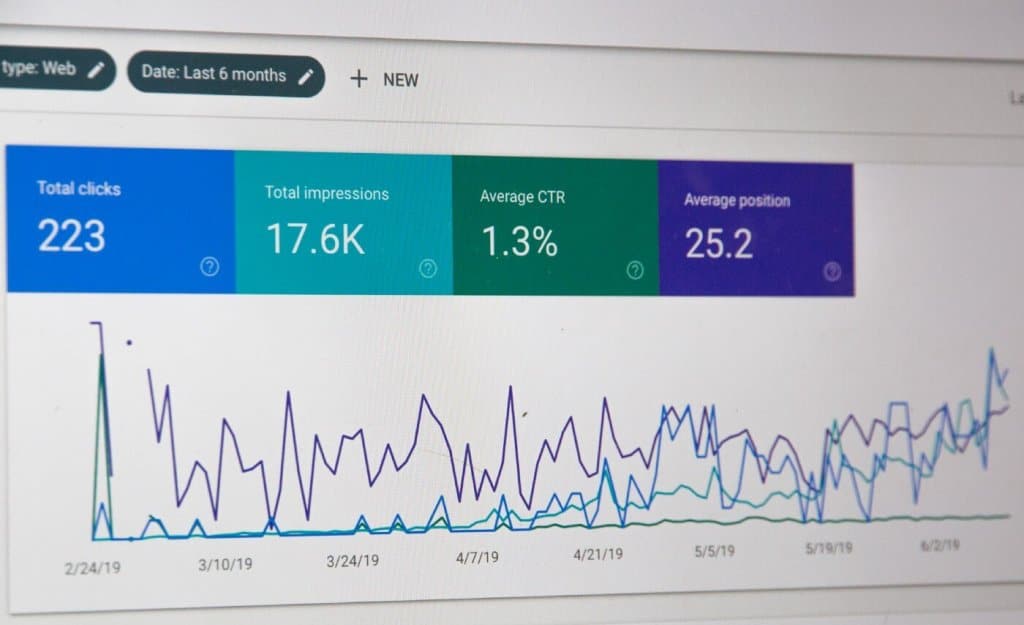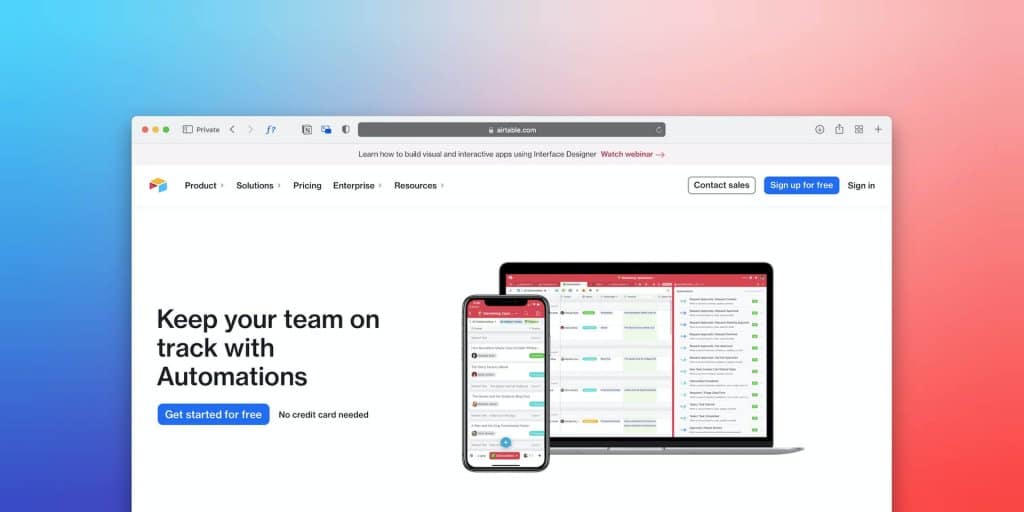
Top 8 Bubble Plugins to Supercharge your No Code App
When we first started using Bubble a few years ago, it was a struggle to find out little performance-boosting features from the plugins store. Since then, the...
If you’re looking for a powerful way to manage your data, you should consider integrating Bubble Airtable integration. Bubble.io is a great online builder for creating and managing your own custom databases, while Airtable is an online spreadsheet that allows you to easily create and manage tables of information. When these two apps are integrated, it creates a powerful data management system that can help streamline your workflow.
In this article, we will discuss the three main reasons why you should integrate Bubble.io with Airtable and provide you with the most effective method to do so!

When you integrate Bubble.io and Airtable, you get access to the ease of use that Airtable offers. With its intuitive drag-and-drop interface and powerful search functions, it’s easy to organise your data into different spreadsheets and view them from any device.
Plus, with the ability to add formulas and create graphs within each table, you can quickly analyze data sets in real time – regardless of how large or small they are!

If you already are an Airtable user, building an application with Bubble will enable you to interact with Airtable data more easily – more on that in the next paragraph!
By integrating Bubble.io with Airtable, you can unlock a range of advanced use cases for your Airtable base.
In essence, you will be able to display your data in ways useful to you: graphs, custom tables and so on.
Connect that with Bubble workflows and you can create an automated system which, for example, sends updates to your key clients based on changes in their account status.
You can also supplement the data you have about clients in Bubble with data in Airtable[1].
Easily record and store complex information on the usage of your Bubble application to take your analytics to the next level[2].

Create a CMS (Content Management System) where changes to records in Airtable can be done through a visual interface built with Bubble[3].
Build an inventory management system. Scan barcodes with the Airtable mobile application and use the Bubble platform to make orders, connect barcodes with products and more.

Additionally, you can integrate other third-party services into your Bubble app for even more advanced functions.
One of the key benefits of integrating Bubble.io with Airtable is that it provides an extra layer of security for your data.
With Airtable, you can easily back up the database from your Bubble app and keep all of your data safe in case something goes wrong – no matter how large or small your app is! Plus, if you ever need to edit data for Bubble, it’s easy to do so directly within Airtable.
The best way to integrate Bubble.io and Airtable is this Bubble.io plugin called Bubble to Airtable Two-way Sync.

Use it to easily manipulate records in one of the tools and Two-way Sync will take care of the rest. When you connect Airtable to Bubble with this plugin, you can[4]:
You can try out all of the plugin features in its demo app!
With a setup that will only take you 5 minutes, using this Airtable plugin is probably the easiest way to implement a Bubble-Airtable integration.

Just install the Two-way Sync plugin, input the Airtable API key and that will connect Airtable to your backend, with no code needed.
NOTE: Even though there is a ‘native’ Bubble-Airtable plugin available, it suffers from numerous issues such as slow loading speeds and API-related drawbacks, such as API throttling. These problems have been fixed in the Two-way Sync plugin.
Integrating Bubble.io with Airtable is a great way to manage your data and unlock powerful new use cases for your app.
With its intuitive interface and powerful search functions, it makes organizing data easier than ever before – plus, you get the added benefit of extra security for your database.
So if you’re looking for an efficient way to manage and back up your Bubble app’s database, integrating Bubble.io with Airtable is the perfect solution!